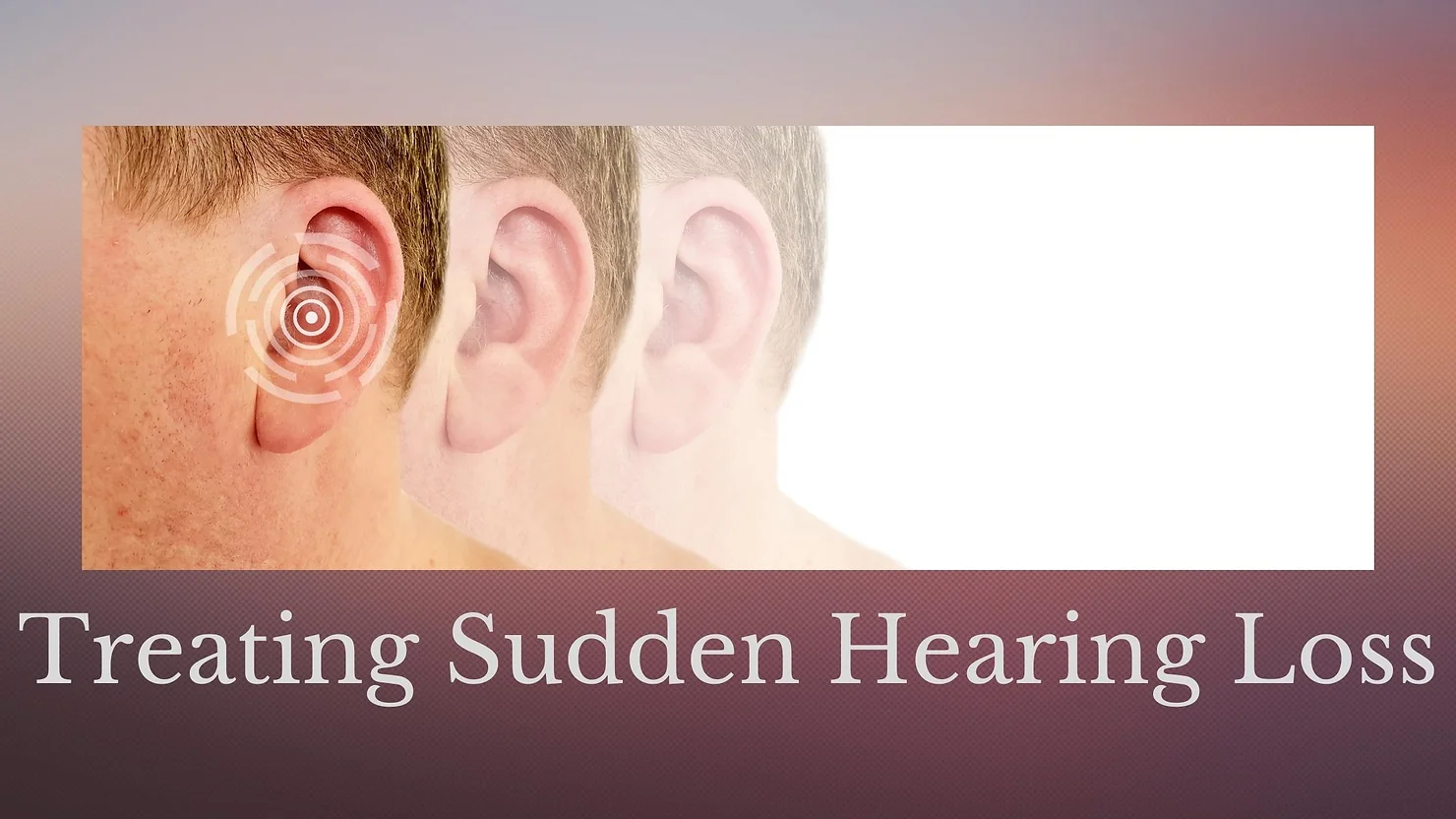
The sudden loss of hearing can be an overwhelming and worrisome experience. Sudden sensorineural hearing loss (SSNHL) can happen in one or both ears. It is typically a temporary experience and most people make a full recovery. If you experience SSHL, it is important to seek medical attention as soon as possible. Addressing sudden hearing loss early helps the transition into improved hearing health.
What is Sudden Hearing Loss?
Sudden hearing loss is the loss of hearing fairly rapidly. It is the loss of 30 decibels of hearing over a period of less than three days. Typically, sudden hearing loss occurs in one ear and happens in less than 24 hours, appearing without prior symptoms or warning. Nearly 1 in 5,000 adults experience sudden hearing loss every year and this number is likely much higher due to the number of cases that go unaddressed. It is common to think that sudden hearing loss is a result of allergies, earwax accumulation, or another fleeting cause which leads people to not seek treatment. But it is incredibly important to see a hearing healthcare specialist as soon as possible. Sudden hearing loss is considered a medical emergency and early treatment can really protect hearing health from permanent damage.
Causes & Symptoms
SSNHL is different from other types of hearing loss because it occurs incredibly quickly and its causes often remain unknown. It is estimated that causes are identified only in 10-15% of cases that are reported. Known factors that increase the risk of experiencing sudden hearing loss include the following:
-
Viral or bacterial infections
-
Inner ear disorders
-
Autoimmune conditions
-
Head and/or neck injuries
-
Neurological conditions
-
Specific medications
Researchers and hearing healthcare experts suggest that a viral infection is likely the cause when there are no other easily identifiable contributing factors to sudden hearing loss. Most people who experience sudden hearing loss report having a cold or respiratory issues prior to the onset of sudden hearing loss. Viruses produce inflammation that can impact the inner ear by either damaging the tiny hair cells that help process soundwaves or affecting blood flow; resulting in hearing loss.
How is Sudden Hearing Loss Diagnosed?
The first step to address sudden hearing loss is scheduling an appointment for a hearing test. Conducted by a hearing healthcare specialist (like an audiologist), hearing tests involve a painless process that measures hearing capacity in both ears. A common test that is used is referred to as pure tone audiometry which involves listening to sounds played at a range of frequencies. You will wear headphones in a quiet space and be guided through these sounds, indicating what you are able to hear. This identifies hearing loss as well as the specific degree of impairment (measured in decibels). Your hearing healthcare provider may also conduct additional testing to help identify underlying causes contributing to the onset of sudden hearing loss. This can include blood tests, balance tests, MRIs etc.
Treatment
Most people who seek treatment early regain their hearing. The most common treatment for sudden hearing loss is prescribed steroids which are taken orally for 1-2 weeks. Steroids, specifically corticosteroids (cortison), reduce the inflammation that is often preventing the inner ear to perform essential functions. Though steroids are typically prescribed in pill form, it can also be administered via injection behind the eardrum. This treatment option is known as intratympanic corticosteroid therapy. In addition to steroids, other medications could be prescribed depending on any underlying conditions that have been identified. For example, if a viral or bacterial infection is present, your healthcare provider can prescribe antibiotics.
The great news about sudden hearing loss is that most people often recover spontaneously within the first two weeks. For people who experience severe hearing loss, symptoms of vertigo as well as tinnitus (a buzzing or ringing noise in the ears), and/or wait awhile to seek treatment; there may be permanent damage that needs longer lasting treatment. In this case, hearing impairment will likely be treated with hearing aids. These are electronic devices designed to support the ears and brain with detecting and processing sound.
Because the window to seek treatment is short (2-4 weeks), it is imperative for people to address sudden hearing loss immediately. A delay in treatment can cause irreversible damage and lead to permanent hearing loss.
Contact us today to schedule an appointment!
